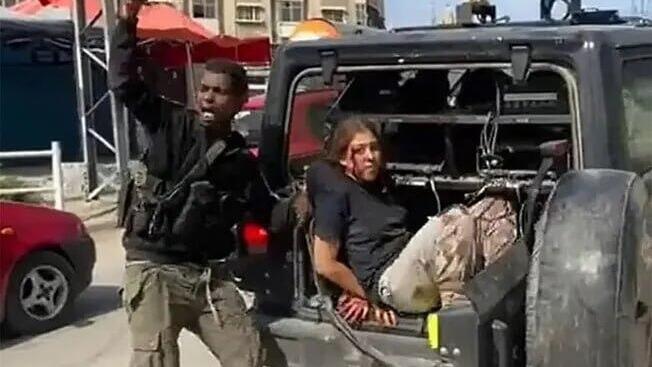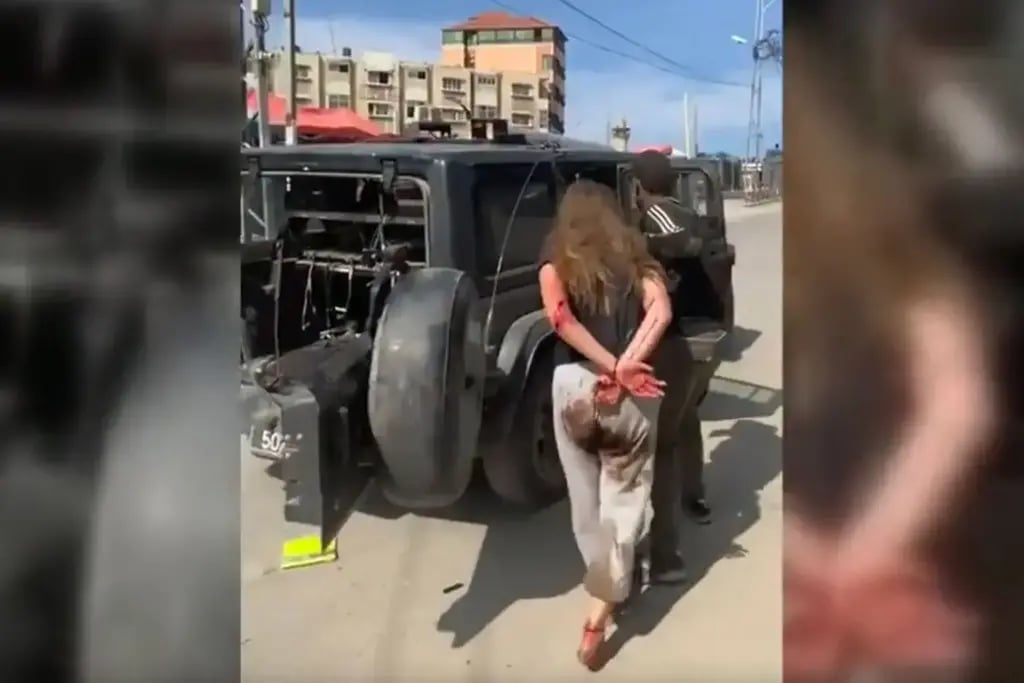In a desperate plea, Ayelet Levy Shahar asked "What would you do if your daughter were being held hostage by violent rapists and murderers for two months? Perhaps the better question is: What wouldn’t you do?"
More stories:
Levy posted her plea in a letter on the Free Press website on Friday and warned the time for her daughter, the 17 other women held by the terror group and all other hostages, was running out.
“You have seen the video of my daughter Naama Levy. Everyone has,” Ayelet Levy Sachar wrote. “She is seriously injured. She is frightened. And I, her mother, am helpless in these moments of horror,” Sachar said.
Naama was abducted on October 7. She was filmed by her abductor being dragged out of the back of a jeep at gunpoint, barefoot with her hands bound in bloodied clothes, and shoved back into the vehicle.
Evidence of mass rapes and murders carried out by Hamas on that day has emerged mostly in video clips filmed by the terrorists themselves and posted online. Some atrocities were then sent to the families of the victims by the terrorists.
Levy Shachar described her as a girl "who truly believes in the good of all people. She enjoys athletics and dreams of a career in diplomacy, and her greatest passion is helping those in need. As a girl, she was a member of the “Hands of Peace” delegation, which brings together American, Israeli, and Palestinian youths to promote global social change.
In addition to being Naama Levy’s mother, I’m also a primary care doctor and the team physician for Israel’s women’s soccer team. I work with young women, and I understand the medical risks of spending every day in darkness, without enough nutrition or medical care or even basic hygiene. As a mother, I simply worry: Did my daughter’s captors give her a clean change of clothes, or is she still sitting in the same bloody sweatpants she was abducted in?
There’s a reason why women and children were prioritized first for release: younger women are at greater risk for further trauma. Just as women and girls are more vulnerable to more forms of violence, they are also more vulnerable to suffering from infections and pregnancy from sexual violence.
The longer Naama is held in captivity, the more violence she is subjected to, the more likely she will suffer the consequences of lifelong post-traumatic stress. When she is released, I pray that the image of her abduction, and the experience of what that image represents, isn’t how she comes to see the world.
Meanwhile, time passes through an hourglass, and the sands are not infinite.
The seventeen female hostages are not bargaining chips to be debated by diplomats. They are daughters, and one of them is mine. My primal scream should be the scream of mothers everywhere. Bring her home now!




